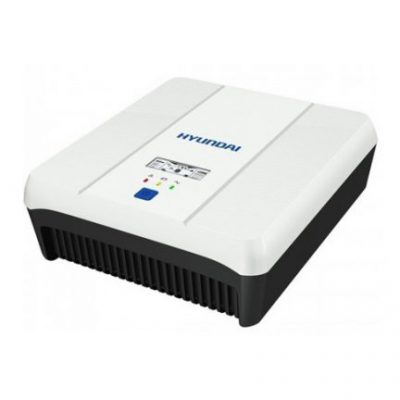We are rapidly moving towards a world where the back office is almost completely automated. Consider: Gartner predicts that within a year, half of B2B invoices will be paid without manual intervention, with more to come. 80% by 2030.
We’re not there yet-Recent research suggests that, today, 57% of invoice data still requires manual entry — but that’s clearly coming soon. That’s because the speed, capacity, cost savings, and accuracy provided by modern intelligent document processing (IDP) are nearly impossible to match. And adoption will accelerate as Generative AI (GenAI) powers make huge leaps in IDP capabilities, robustness, and ease of implementation.
UiPath is one of the major innovators in the IDP space. Our IDP innovation and product strategy can be summarized as follows: leveraging automation, specialized AI, and GenAI to break down the roadblocks to IDP that have historically hindered its adoption. These barriers include:
Challenges in dealing with high variability in document formats
Difficulty handling unstructured data
Diligent model training
Scalability limitations
Security concerns
Over the past year, we have made significant progress in addressing these issues. In fact, Everest Group recently named us a leader in the IDP category PEAK Matrix® assessment for the second year running. This year, we had the highest ratings for both ‘Vision and Capability’ and ‘Market Impact’. (You can register here to receive an exclusive copy of the UiPath Profile Report.)
So, as background, let’s take a look at the ways we’re combining automation, specialized AI, and GenAI to take IDP to the next level and make it an even more compelling value proposition. have been.
Using Basic LLMs to Address Unstructured Data Challenges
One way we have pushed past existing limitations in IDP is by using basic LLMs like GPT-4, which are trained on diverse datasets.
We have added new. Capabilities of GenAI. In our current products. For example, we now use LLMs within UiPath Document Understanding, which has greatly improved our ability to process freeform unstructured documents such as legal agreements, contracts and emails with high accuracy. . GenAI has also helped us dramatically reduce the effort required to train models to understand specific documents and forms—cutting the time by up to 80% from weeks to hours or a day or two.
At HUB International, a major insurance company, these new GenAI-powered capabilities have turned an impossible task into a manual one that can be completed in minutes:
We needed to extract and identify data from thousands of unstructured documents – a task that we had never been able to accomplish manually before due to the high complexity and variability of the documents. Now, the creative AI capabilities in UiPath document understanding do this in less than five minutes — with incredible accuracy and time savings for our team.
Thach Nguyen, Director of Digital Innovation, HUB International
Moving to specialized LLMs to enhance accuracy and enhance operational efficiency
Although foundational LLMs have a broad task range that they can perform well, they have significant limitations and weaknesses when it comes to applying them to specific domains, business processes, or document types. This creates a problem for IDP trying to leverage them (which is, in essence, about processing specific document types within a specific, defined business context).
Think about it: if you’re looking for an IDP solution, you probably don’t care which model knows which directive. The Titanic Or how photosynthesis works. Instead, you’d prefer a model that knows which fields need to be filled in your company’s (or country’s) tax forms or which documents can be accepted as proof of identity. You want a model that is accurate out of the box, requires significantly less training time, and is computationally efficient. This is exactly what the right specialized LL.M. can provide.
That’s why we’re building specialized LLMs built around a corpus of knowledge specific to domains, industries and business processes. In recent UiPath AI Summit, we announced the general availability of two such models, DocPath and CommPath. Primarily leveraging GenAI, these models are specialized and tuned to process complex business documents and diverse communications—from complex conversations to free-form documents and tables.
By reducing focus, but retaining the vast new power of GenAI, our specialized LLMs can significantly improve the output accuracy of currently available LLMs—critical to delivering efficient, reliable IDP. (Think about it: An extra zero removed from an invoice can increase payment tenfold or cause delays in the accounts payable process, potentially straining relationships with vendors, performance can reduce, and even cause financial and reputational damage to, the company.)
To test the accuracy of UiPath LLMs against both core LLMs and other IDP vendors, we conducted head-to-head tests across a diverse set of enterprise documents. Results? Compared to GenAI’s leading models, DocPath’s error rate was 45% to 76% lower. Additionally, in interpreting complex table structures, UiPath DocPath outperformed other IDP and GenAI vendors by registering 30-65% fewer extraction errors.
Source: Tests by UiPath AI R&D on a diverse set of enterprise documents
Specialized LLMs are also beneficial in reducing or eliminating the need for customized training, as they are better designed to handle different types of documents and communications out of the box. For example, the model that powers our free automated copy and paste standalone app, UiPath Clipboard AI™Provides over 90% accuracy for frequently used documents such as invoices, utility bills, purchase orders, receipts, passports, and W2 forms.

Generative LLMs that are specialized for specific tasks enable enterprise automation at scale. For IDP, specialized LLMs that provide lower error rates, better efficiency, and faster time to value convert unstructured and semi-structured documents and communications into valuable digitized data that can be used in automated processes. are
Ensuring consistency and security for GenAI deployments
Although the use of GenAI fundamentally improves the performance of IDP and expands its capabilities, it increases security and operational risks. For example, core LLMs require extensive access to data to function effectively, so sensitive business information may be inadvertently exposed or misused. Furthermore, basic LLMs may lack the expected consistency, meaning they give different answers to the same question at different times. Relatedly, they can produce so-called hallucinations as output—that is, the model provides an incorrect answer that is not based on any facts or logic, yet believes it to be correct.
To ensure that the full power of GenAI can be safely unleashed across the enterprise, these risks can and should be mitigated. We have taken several steps to do this.
To address data security issues, UiPath provides an additional A security layer for generative models—UiPath AI Trust Layer — which helps ensure adherence to compliance standards. Additionally, to reduce the risk of errors, there are some methods. Validate the model output. And keep a human in the loop to double-check results as needed.
Read more about UiPath AI Trust Layer.
Additionally, the use of specialized LLMs, rather than core LLMs, is itself a substantial risk reducer. For example, DocPath and CommPath process data securely within the secure environment of the UiPath cloud ecosystem. This not only helps ensure comprehensive adherence to compliance standards but also helps maintain data privacy, significantly reducing the risk of privacy breaches. Moreover, DocPath and CommPath are less likely to be fooled, because their responses are based entirely on the data and context of the company documents and messages they process.
LLMs at the forefront of digital evolution at IDP
The emergence of GenAI within IDP has greatly advanced business operations, yet these advances come with their own set of challenges. Specialized LLMs play an important role in overcoming these constraints while improving operational efficiency. With their ability to intelligently process large amounts of unstructured data, LLMs are leading a new wave of productivity and growth in the business world. As the world continues to evolve digitally, their critical role in smooth data management will become more evident.
UiPath has embraced the new possibilities emerging from GenAI and LLMs, leveraging these developments extensively in our quest to provide best-in-class IDP and enterprise automation across various business processes. You can. Check out the UiPath AI Summit To learn about the latest UiPath AI capabilities such as DocPath and CommPath LLMs.












